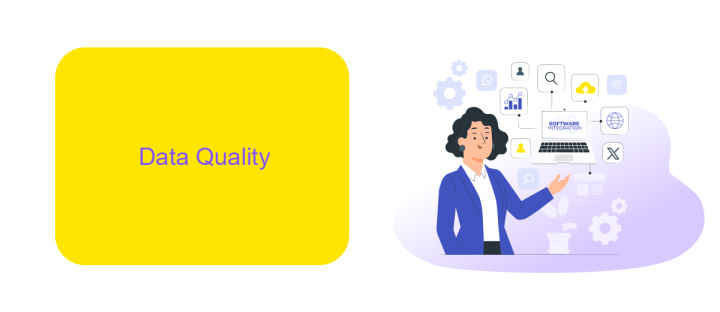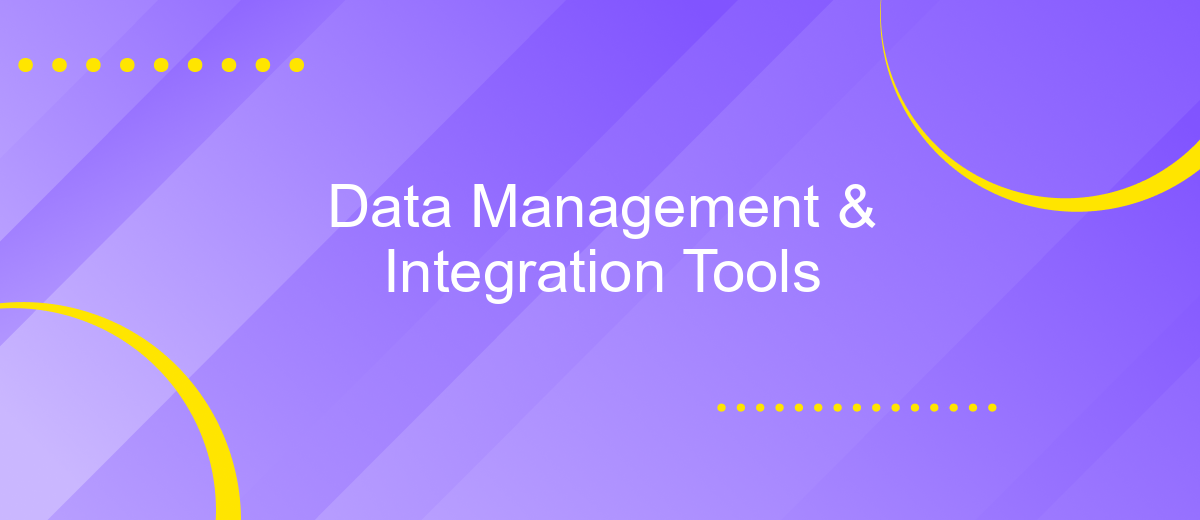Data Management & Integration Tools
In today's data-driven world, effective data management and integration tools are essential for organizations seeking to harness the power of their information assets. These tools facilitate seamless data flow across diverse systems, ensuring accuracy, consistency, and accessibility. By leveraging advanced data management and integration solutions, businesses can optimize decision-making processes, enhance operational efficiency, and gain a competitive edge in the marketplace.
Data Integration
Data integration is a critical process in modern data management, enabling seamless connectivity between disparate systems and ensuring data consistency across platforms. By integrating data from various sources, organizations can achieve a unified view, which is essential for informed decision-making and operational efficiency.
- Streamlined data flow between different applications
- Enhanced data accuracy and consistency
- Reduced manual data entry and associated errors
- Improved real-time data access and reporting
Tools like ApiX-Drive facilitate the integration process by providing a user-friendly interface and support for numerous applications. ApiX-Drive allows businesses to automate workflows and synchronize data effortlessly, minimizing the need for complex coding and technical expertise. This not only saves time but also ensures that data remains up-to-date across all integrated systems, empowering organizations to harness the full potential of their data assets.
Data Quality

Ensuring data quality is paramount in any data management strategy. High-quality data is accurate, consistent, and reliable, which is essential for making informed business decisions. Poor data quality can lead to errors, inefficiencies, and misguided strategies. To maintain data quality, organizations must implement robust data validation and cleansing processes. These processes help identify and rectify inaccuracies, remove duplicates, and standardize data formats, ensuring that the data remains trustworthy and actionable.
Integration tools play a crucial role in maintaining data quality by automating data transfer processes and reducing the risk of human error. For instance, ApiX-Drive offers seamless integration capabilities that help streamline data flows between various systems. By using such tools, organizations can ensure that data is consistently updated and synchronized across platforms. This not only enhances data accuracy but also improves operational efficiency. Regular monitoring and auditing of data quality metrics are also essential to continuously assess and improve the integrity of the data.
Data Governance

Data governance is a critical component of effective data management, ensuring that data is accurate, consistent, and secure. It involves the establishment of policies, procedures, and standards to manage data assets throughout their lifecycle. Proper data governance helps organizations comply with regulations, mitigate risks, and make informed decisions based on reliable data.
- Define clear data ownership and stewardship roles.
- Implement data quality management practices.
- Establish data access and security controls.
- Ensure compliance with relevant regulations and standards.
- Utilize tools for data integration and automation, such as ApiX-Drive, to streamline data workflows.
Effective data governance requires continuous monitoring and improvement to adapt to evolving business needs and regulatory requirements. By leveraging tools like ApiX-Drive, organizations can automate data integration processes, ensuring seamless data flow across systems while maintaining governance standards. This holistic approach to data governance not only enhances data quality but also drives business value by enabling data-driven decision-making.
Data Security

Ensuring data security is paramount in the realm of Data Management & Integration Tools. It involves implementing measures to protect data from unauthorized access, breaches, and other cyber threats. Organizations must prioritize robust security protocols to safeguard sensitive information.
One critical aspect of data security is encryption, which ensures that data is unreadable to unauthorized users. Additionally, regular security audits and compliance with industry standards are essential to maintain the integrity and confidentiality of data. These practices help organizations identify vulnerabilities and implement necessary improvements.
- Encryption of data at rest and in transit
- Regular security audits and vulnerability assessments
- Compliance with industry standards and regulations
- Access control and authentication mechanisms
Tools like ApiX-Drive can also enhance data security by providing secure integration solutions. ApiX-Drive enables seamless and secure data transfers between various applications, ensuring that data remains protected throughout the integration process. By leveraging such tools, organizations can enhance their data security posture while achieving efficient data management and integration.


Data Analytics
Data analytics is essential for transforming raw data into meaningful insights that drive informed decision-making. By leveraging advanced analytics tools and techniques, organizations can uncover patterns, trends, and correlations within their data. This process not only enhances operational efficiency but also helps in identifying new opportunities for growth and innovation. From predictive analytics to real-time data visualization, the capabilities of modern data analytics are vast and continually evolving.
One of the critical aspects of effective data analytics is seamless integration with various data sources. Tools like ApiX-Drive facilitate this by providing a user-friendly platform for connecting and automating data flows between multiple systems. By ensuring that data from disparate sources is accurately and efficiently integrated, ApiX-Drive enables businesses to maintain a comprehensive and up-to-date view of their operations. This integration capability is crucial for performing robust data analysis and generating actionable insights that can lead to better strategic decisions.
FAQ
What is Data Management & Integration?
Why is Data Management & Integration important for businesses?
How can I automate data integration between different systems?
What are the benefits of using a data integration tool?
Can I integrate data from cloud-based applications with on-premise systems?
Time is the most valuable resource for business today. Almost half of it is wasted on routine tasks. Your employees are constantly forced to perform monotonous tasks that are difficult to classify as important and specialized. You can leave everything as it is by hiring additional employees, or you can automate most of the business processes using the ApiX-Drive online connector to get rid of unnecessary time and money expenses once and for all. The choice is yours!

